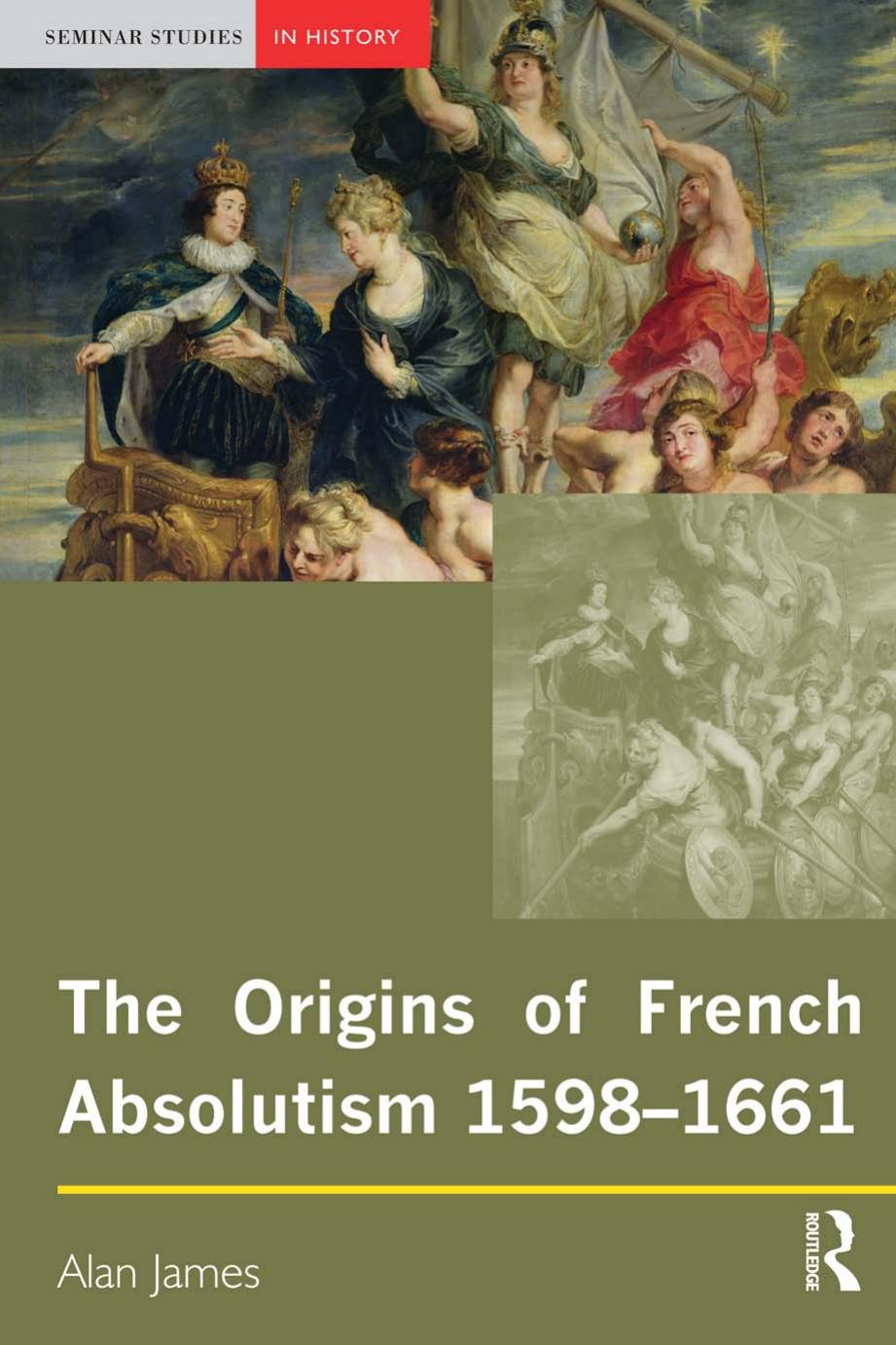The Origins of French Absolutism, 1598-1661 by Alan James

Author:Alan James [James, Alan]
Language: eng
Format: epub, pdf
ISBN: 9780582369009
Barnesnoble:
Publisher: Taylor & Francis
Published: 2006-04-13T00:00:00+00:00
Chapter Five
Social Order
French kings craved social order. This meant they wished to see an end to peasant and urban rebellions, certainly. But, more than anything else, this order required normal relations with the nobility from which, it was assumed, stability throughout society would follow. It is true, as the âFronde of the Parlementâ had shown, that the institutions of government could be obstructive. More often, however, they were useful. To make law, a king needed law courts to register and enforce it. To understand regional concerns and to receive subsidies, he needed the estates in the provinces where they were established. In a similar way, he relied on his other bodies and a raft of officials and bureaucrats for a variety of services. Yet all of these were merely practical tools of government. In this society, real power lay with the nobility, and it was only through them that it could be exercised fully, as reflected in the eagerness with which non-nobles who served the crown sought, and were often eventually awarded, ennoblement for their families. Members of the existing upper nobility either had their own, largely independent authority in an area which the crown could hope to exploit, such as the Condé family in Burgundy, or they could be awarded key roles, such as important commissions in the army or a provincial governorship. The importance of governors, in particular, to the effective exercise of the crownâs authority is reflected in the quality of the people appointed, sometimes relations of the king himself. In this sense, the elevation and dependence upon Richelieu and Mazarin was merely an extension into the day-to-day administration of government of the same political instinct. It was through men of status and influence that the crown ruled.
Thus although royal authority was at a low ebb in the summer of 1649, and historians have correctly identified very real dangers posed, the Fronde was about to enter into a more destructive and violent phase as the leadership passed to Condé, arguably the most significant noble figure in the realm. This âFronde of the Noblesâ, as it is often known, was more serious from the crownâs perspective precisely because it was led by members of the nobility, the key elements of its military and political power. Historically, civil uprisings became genuinely dangerous to the crown when they involved, or indeed were led, by nobles. Thus, despite the apparent radicalism of the revolt that had been led primarily by the parlements and their more far-reaching demands, this rebellion posed a graver challenge to the young King Louis XIV. Or, put differently, it could only be with the defeat of this noble rebellion in 1653, and the re-establishment of a mutually dependent relationship with the kingâs most significant subjects, that the immediate dangers posed by the Fronde could be said to have passed.
The dramatic confirmation of Louis XIVâs authority, as king, over all of his subjects in 1653 has reinforced the assumption of historians that the nobility had been in terminal
Download
The Origins of French Absolutism, 1598-1661 by Alan James.pdf
This site does not store any files on its server. We only index and link to content provided by other sites. Please contact the content providers to delete copyright contents if any and email us, we'll remove relevant links or contents immediately.
18 real-life stories of serial killers and murderers with solved and unsolved killings from the USA, UK, Europe, and beyond. by Ben Oakley(167)
Who's Who in the Zulu War, 1879: The British by Adrian Greaves Ian Knight(163)
Design, construction, and validation of optogenetic proteins by Colin P. O'Banion & Anwesha Goswami & David S. Lawrence(111)
The Battle of Austerlitz by 50minutes(108)
Interest and Connection in the Eighteenth Century by Jacob Sider Jost(105)
Fires of Faith by Catholic England under Mary Tudor(105)
The Seeker by S. G. MacLean(102)
The Origins of French Absolutism, 1598-1661 by Alan James(100)
Invisible Worlds by Peter Marshall(98)
The Slave Trade in Africa by Simon Webb;(96)
A Cultural History of Theatre in the Age of Enlightenment by Leon Mechele;(93)
Islam and the Trajectory of Globalization by Louay M. Safi(92)
Medicine in Modern Britain 1780-1950 by Deborah Brunton(92)
Witchcraft in Early Modern England by James Sharpe(92)
A Genius for Confusion by Richard M. Fried(89)
The Thirty Years War â Complete by Friedrich Schiller(88)
Pentecostal Republic by Ebenezer Obadare(85)
Practices of Diplomacy in the Early Modern World c.1410-1800 by Tracey A. Sowerby Jan Hennings(81)
Married Women in Legal Practice by Charlotte Cederbom(79)
